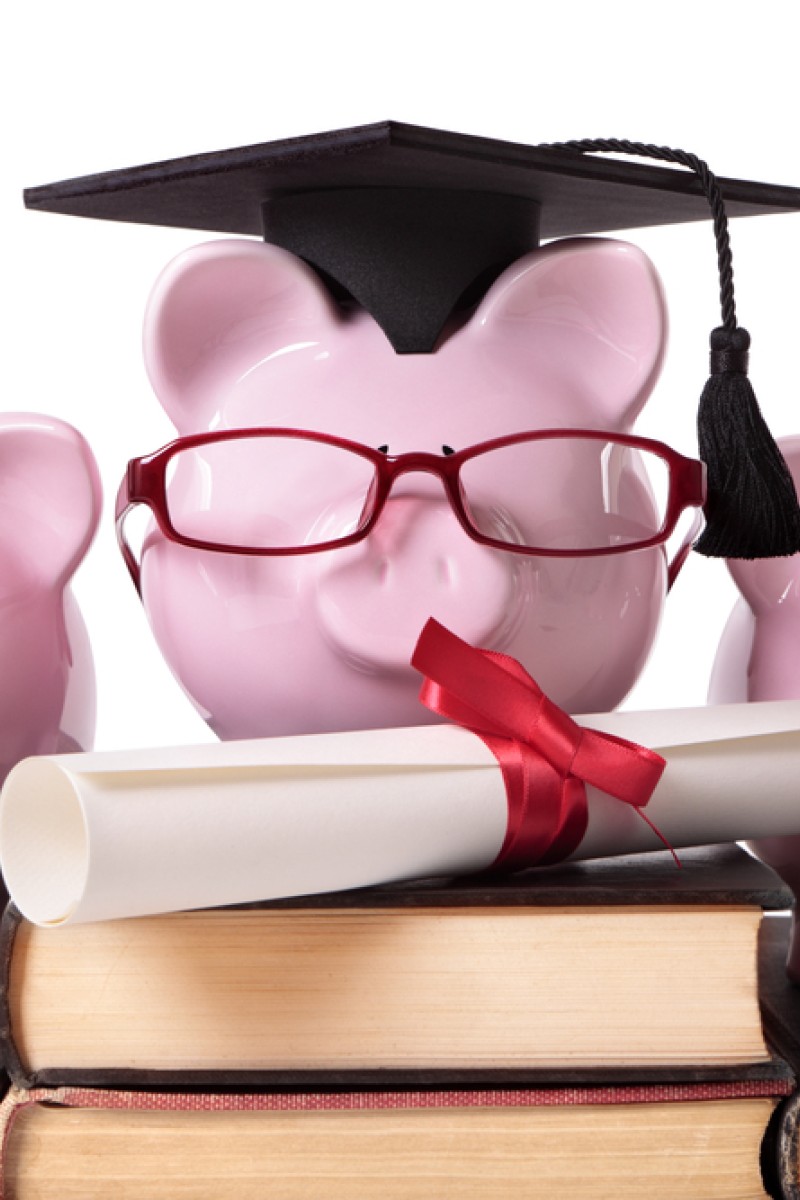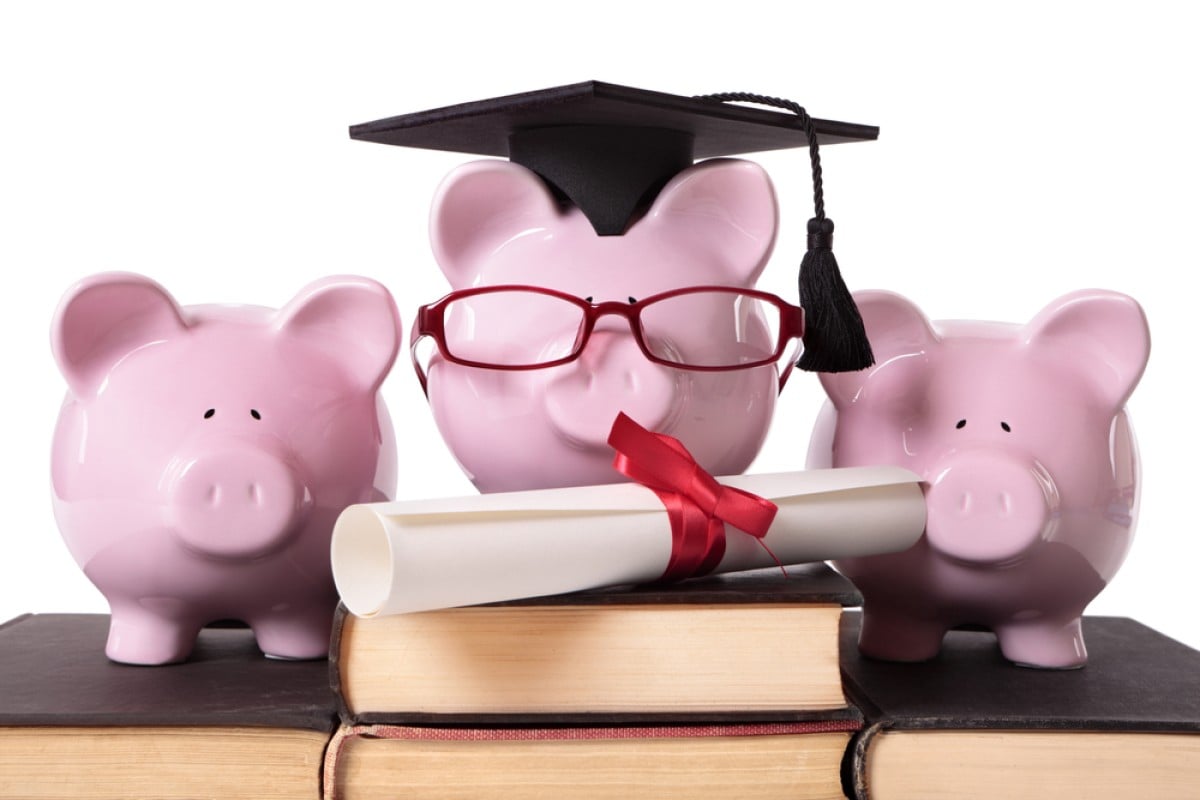
Hate it when you can’t talk back? Well, you can with Young Post. Have your say and share with students around Hong Kong

Muhammad Zahid, 15, Islamic Kasim Tuet Memorial College
The government should either set up on its own universities, or provide incentives for the private sector to establish some. Singapore has a smaller population than Hong Kong, yet seems to have more universities and different pathways to higher education. This gives students the chance to study when they pass all subjects, rather than being forced to go overseas to pursue higher education. Given that there is a government surplus, investment in education to maintain competitiveness should be a high priority.
Kimmy Ma Cho-yu, 13, Carmel Divine Grace Foundation Secondary School
We can provide collaborative learning. If students help one another, we can have bigger classes, so more students can have free education. More focused learning will also make education cheaper.
Parents should not give their children any pressure by forcing them into a lot of activities. They should keep their children focused on studies so they can learn better and happily.
Darren Leung Yat-long, 16, PLK Ma Kam Ming College
We can make education cheaper by sponsoring Hong Kong student’s textbook and extracurricular activities. As we all know, Hong Kong already has a 12-year free education policy and students in Hong Kong are not required to pay tuition in most of the schools. Therefore, the only things we have to pay for are the textbooks and extracurricular activities, so sponsoring these would make education cheaper.
Harry Lee Chun-ho, 16, Ma On Shan Tsung Tsin Secondary
E-learning can make education cheaper because it doesn’t need printed books. We will then cut fewer trees and save the printer ink. It can save a lot of resources.
Students can do online exercises such as reading or listening, which will save paper and money. Students can submit homework by email and teachers can mark them onscreen and then return to students. Teachers can record some tutorial videos and send them to students for study or revision purposes. By doing so, less money can be spent on hiring teachers.
The money saved can be used to maintain the school computer system and upgrade the network.
Stephanie Tam, 13, Tak Nga Secondary School
Students can apply for the School Textbook Assistance Scheme, the Student Travel Subsidy Scheme and the Subsidy Scheme for Internet Access Charges. That can greatly reduce tuition.
Schools can increase the student-teacher ratio by combining two small classes into one. Then they don’t need to hire more teachers. Also, we can buy second-hand books because they are cheaper than new books. If you are going to join a tutorial centre, you can find your friends and sign up together, because some centres will offer a discount for group sign-ups.
Titus To, 17, Ma On Shan Tsung Tsin Secondary School
Using e-books will be a good way to make education cheaper. E-books are more environmentally friendly and cheaper than traditional textbooks. Though learning tools are expensive, the government could subsidise students to buy tablets for school.
The government could also provide financial aid to students who join extra-curricular classes. These classes help develop students’ interpersonal skills and help those who have difficulties learning in normal regular classes. The activities like sports and music can cultivate students’ intelligence in many ways, which is important for students to grow healthily.
Cholena Wong, 12, Tak Nga Secondary School
Many people waste money trying to get better results, but there are cheaper – or even free – ways of doing that.
First, you can read books. Books are magical, they have all kinds of information. By reading more, you will know how to write a good poem, you will know more vocabulary, and your grammar will be improved. The best part is, books can be borrowed from the library!
Second, you can print the previous tests or exercises out and erase all the old answers and re-do them. This will help you revise all you have learned. If you see similar question during a test, you will know the answer. This will not waste any money.
If you really want better results, sacrifice your time to revise instead of playing. Don’t make any excuses to waste money, work hard!
Man Mary Grace Villacorte, 13, Tak Nga Secondary School
Thanks to the internet, we can promote many different kinds of online education lectures. That way, students wouldn’t need transportation to go to school everyday. They could just stay at home and turn on the computer to listen to lectures of different subjects from the Education Bureau. Students could download the textbooks through the internet, so we wouldn’t have to spend a lot of money buying expensive books. There will be less printing companies in the future because all textbooks and newspapers could be read on devices. This would also save a lot of trees!
Jasmine Lo, 12, Tak Nga Secondary School
Many parents nowadays spend a lot on tutorial classes and activities for their children. But if students paid more attention in class, they wouldn’t need these extra lessons.
To save paper and money, schools should use electronic books and supplementary notes instead of textbooks by publishers. The government can also provide the education tax fee for children or give more subsidy on education expense. Also, schools should provide scholarship for hard-working students, and support for poor families to have education.
Prudence Mak, 12, Tak Nga Secondary School
Everyone think that education in Hong Kong is very expensive. However, some of them just pay for some useless things that are very expensive, such as tutorial centres.
But why? Why can’t they just pay attention in class?
Cherie Chan, 12, Tak Nga Secondary School
Students in primary or secondary schools need to buy a lot of books that are not related to text books, but are for learning. This a bit too much. Books are expensive and it is tiring to bring all the books and climb up the stairs everyday.
We also need to pay money for the worksheets and workbooks, so if teachers give less homework, then we can pay less.
Candice Kok King-ching, 12, Tak Nga Secondary School
Borrow books from the library or use second hand books.
Samantha Mak, 12, Tak Nga Secondary School
Self-learning is the key. It is a way of learning about a subject that involves studying alone at home, rather than in a classroom with a teacher. You can download some past exercises. Learn from your mistakes and jot down some notes. Do more and you will also improve the reading skills and answer techniques.
Reading is also a kind of self-learning, but borrow books from the library instead of buying them! It can save money and make the education cheaper.
Kristina Sin, 12, Carmel Divine Grace Foundation Secondary School
We can use e-books to replace textbooks, as e-books are much cheaper, since they don’t need to use paper.
Rachel Chan Sze-wing, 13, Carmel Divine Grace Foundation Secondary School
The government should subsidise to build larger campus and more professional schools to popularise education. To provide students with more choice to strengthen competitiveness, the government can introduce more schools with new systems, such as internet education, where students have their lessons online; and open education, where students of different ages can join the same class.
Joyce Wong, 13, Carmel Divine Right Foundation Secondary School
Long distance learning courses, where one teacher can teach many students at the same time and you don’t have to build a campus. Just connect to the internet, and learn!
Kong Tina,13,Carmel Divine Grace Foundation Secondary School
The government should run all the schools. With this financial aid, schools will have enough money to hire teachers, and provide a neat and tidy space for students to study. Also, schools could use e-classes and e-resources instead of traditional printed books.
Stephen Chau Sheung Lam, 13, Carmel Divine Grace Foundation Secondary School
Use e-books instead of textbooks. Since e-books are delivered through the internet, there is no packing and shipping expenses, and students do not need to pay thousands of dollars to buy new books. This is a `win-win-win’ solution for all the students and their parents, isn’t it?
Ho Kelly, 13, Tak Nga Secondary School
Parents can spend some time teaching their children by themselves, or bringing their children to museums or the countryside instead of spending money for tutors.
Arzoo, 14, Tak Nga Secondary School
We can self-learn or learn online instead of paying too much for tutorial classes, I don’t go to any after-school classes but I can still catch up with my lessons at school and do self-learning. We can also rent or sell the old books we don’t need, and make good uses of the income. #FanOfYP
In our next Talking Points we’ll discuss:
Is university worth it? Are there any good careers that don't require a university degree?
We are now accepting answers from readers for this new topic. To take part, email your answer with your name, age, and school, along with a nice, clear selfie (make sure it’s not blurry) to [email protected] by lunchtime on Monday, April 25. Don’t forget to include “Talking Points” in the subject line!